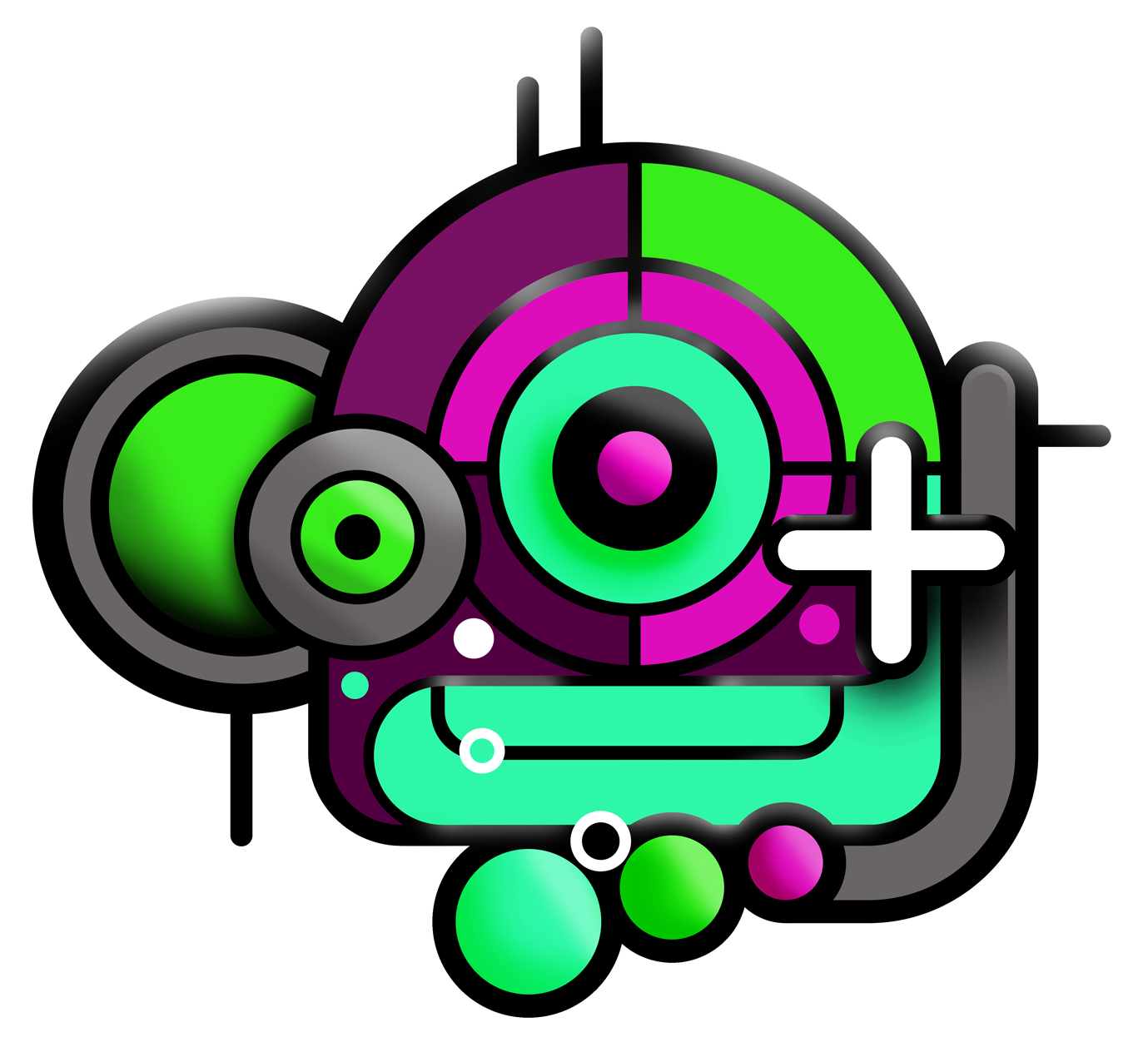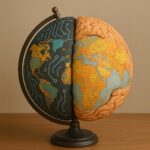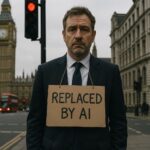There’s a lot of hearsay going on and it concerns our future; doomsday prophesying of human intelligence being inferior and possibly replaceable.
AI is showing off at the moment. Its text-to-image generation skills are squashing our identities into toy packaging as tiny action figures. It’s also turning mere words into cinematic video. It’s egotistically flaunting its soaring IQ in our faces at every turn. The bloody cheek of it all. Have some humility while you’re planning to take our jobs, at least.
Are we looking at a machine vs human checkmate situation in a few decades? What’s our next move? MIT Technology Review recently noted that “the best way to be indispensable in the future is to become more human”.
Why? As far as I understand it, one side of our brain is increasingly being outsourced. The left hemisphere, home to logic, structure, language and sequential thought, processes the world by categorising, dissecting and reasoning. This is also the side that artificial intelligence most closely resembles.
We have also been presented with the brain as a dual system. The other side, the right, governs context, emotion, intuition and creativity. It’s the part of the mind that feels a pause in a conversation, reads a room, imagines a world.
It’s not transactional, it’s transcendent. And crucially, it’s where meaning lives.
Here’s the problem. There’s a lot of hearsay going on and it concerns our future; doomsday prophesying of human intelligence being inferior and possibly replaceable.
Critical thinking, something that needs more attention these days, would demand we check our sources or check with someone other than blog publishers or social media influencers.
For the past 10 years I’ve had the privilege of learning from and working alongside Dr David Rosenstein, a neuroscientist, behaviourist and clinical psychologist. When I co-founded MySociaLife, an education programme helping teens navigate digital life, he was the one I turned to when we needed to understand how devices affect developing minds.
So now that AI has burst into the mainstream, last week I asked him the same thing I’ve asked for a decade: “What does the brain tell us that the tech world might be missing?”
This article is not a denial of AI’s brilliance. It’s an attempt to surface the difference between function and meaning. Between prediction and presence. And to ask: Can AI mimic one half of how we work – what’s left for us? And is it enough to survive on?
The trouble with ‘intelligence’
Rosenstein begins with an important clarification. We toss around the word intelligence as though it were settled science. It’s not.
“When discussing intelligence, we commonly think of IQ – Intelligence Quotient. This is a measure of various forms of information processing and examines domains of cognition which include memory, verbal and spatial processing and reasoning ability, amongst others. However, some would argue that it does not assess all forms of intelligence.”
In short, IQ is not the whole of intelligence – and it’s certainly not the whole of being human.
“We are social animals, and there are processes which IQ does not capture that are pertinent to reasoning, problem solving and adaptation within the social and interpersonal domains… which are just as important for our success as individuals and a species.”
That sentence hit me like a bell. Much of what makes us brilliant – or loveable, or even just bearable to be around – is precisely what AI cannot yet touch.
What the brain actually does
When we hear terms like “machine learning” or “neural networks” we often assume that AI is replicating how the brain works. But Rosenstein is careful to challenge that analogy.
“There are many analogies drawn between how AI functions and how the human brain operates. But are these analogies valid – and are they really describing the same thing? I think many neuroscientists and behavioural scientists would argue that they’re not.”
We love simple comparisons: brain = hardware; thoughts = software. But that’s not how biology works.
“In humans, we can’t clearly separate what counts as hardware and what counts as software. Much of what we examine and assess are emergent properties of the brain – complex phenomena that are often difficult to trace back to specific neurological processes. The brain is in part a social and contextual organ. Especially when we become interested in the many cognitive domains, such as intelligence.”
In other words, consciousness doesn’t come neatly packaged like code. It’s messy, layered and embodied.
“The brain is not merely an information processing and memory repository. It is an interacting and dynamic organ bound within the ever-changing contexts that surround it. This is sometimes referred to as embodied knowledge or intelligence.”
That’s a big deal. Because it means that even if AI gets faster, smarter and more accurate, it still may never truly understand why something matters, or what it feels like to be in a situation.
“AI still lacks contextual sensitivity. It relies on information inputs but lacks the kinds of information we may qualify as sensory. It is also not likely to have the kind of embodied cognitions we experience – the importance of which contribute to many key processes that provide us with information processing steps which may be intimately tied to empathy, theory of mind… intuition and behavioural adaptations.”
AI doesn’t walk into a room and sense tension. It doesn’t hesitate before delivering bad news. It doesn’t flinch, or feel inspired, or grieve.
And yet we assume it can “replace us”.
The mind: still a mystery
This leads to the ultimate question – not just what AI can do, but what it is.
“The mind encompasses not only intelligence but also consciousness, self-awareness, intentionality and subjective experiences (qualia), not just a capacity to process information and problem solve.”
And here lies the deepest divergence between human and machine.
“Some psychologists, philosophers and neuroscientists even question whether mind is completely bound up in processes of the brain. It is hard to definitively define and pin down.
“Mind is also strongly equated with consciousness, which has innumerable definitions. Consciousness is still the great problem in philosophy and the cognitive sciences – similar in part to the unification theory in physics.”
It turns out that the most important parts of being human – awareness, intention, empathy – are also the most difficult to define and, therefore, replicate.
So if we rush to replace ourselves, and fail to defend the intangible, we might give away the very edge that made us irreplaceable in the first place.
Lessons from a decade in the trenches
Across my career, in strategy, creative, media and now AI consultancy, I’ve witnessed how data and logic help refine decisions.
In my work, we use AI every day to optimise workflows, generate content and accelerate ideation. But in the best cases, the human stays in the loop, to guide, edit, feel, pause, reframe. Let the machine write the first draft. Let the human find the voice.
This isn’t a call to panic. It’s a call to explore our humanity at a time when we became algorithmic guinea pigs that consume media with insufficient questioning.
We will need to become more emotionally intelligent, not less. More intuitive, not just analytical. More thoughtful, present and creative.
The things we once called “soft skills” may turn out to be our hardest edge. But we would need to wake up from our automated social media slumber, ask questions and read between the lines with some foresight. That’s a horribly tall order given where we find ourselves, and underpinned by an education system that has missed the demand for new life skills entirely.
I’m researching, challenging, writing – and asking Dr Rosenstein – largely for our kids, to start considering what the future might demand. They deserve way more forethought, given the climate crisis they are already sitting with.
Dean McCoubrey is the co-founder of Humaine and MySociaLife. This article includes scientific commentary from Dr David Rosenstein.
Need a marketing agency? One that harnesses the power of AI for efficiency and results? And, most importantly, one driven by people who care about other people, the planet, and society?
At Humaine, we blend AI with human expertise to deliver smarter, faster, and more impactful outcomes—because the future of business isn’t just about profit; it’s about purpose.
Extraordinary Together.







